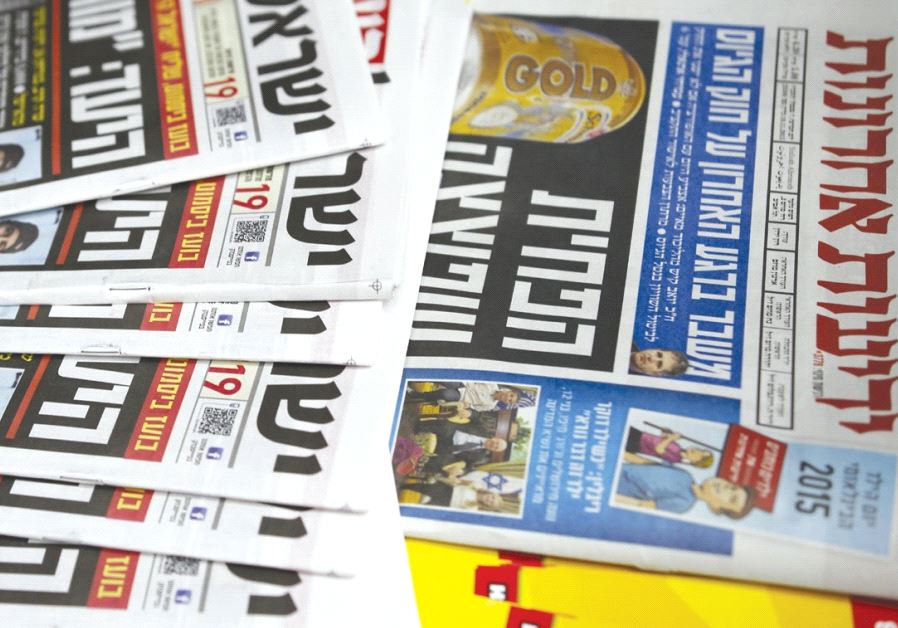Column One: Netanyahu's shameless opponents
Channel 2 has opened its primetime news broadcasts nearly every night this past week with selected minutes from their recorded talks.
 COPIES OF ‘Israel Hayom’ and ‘Yediot Aharonot’ are displayed in Ashkelon l
COPIES OF ‘Israel Hayom’ and ‘Yediot Aharonot’ are displayed in Ashkelon l